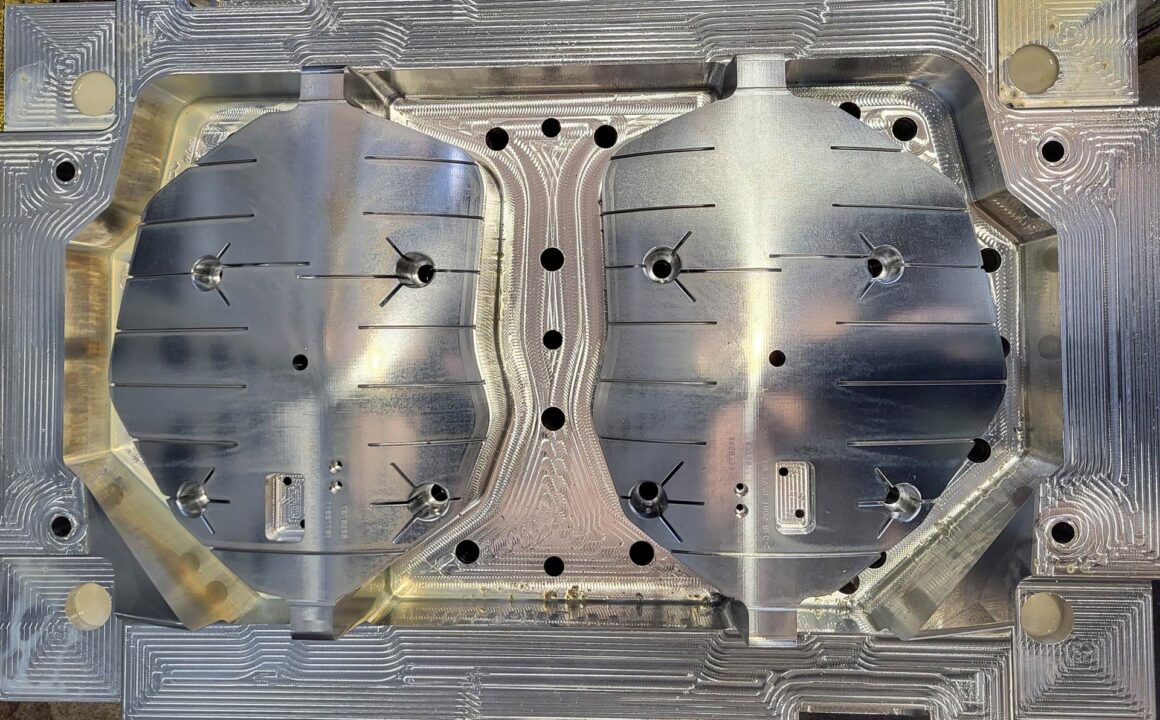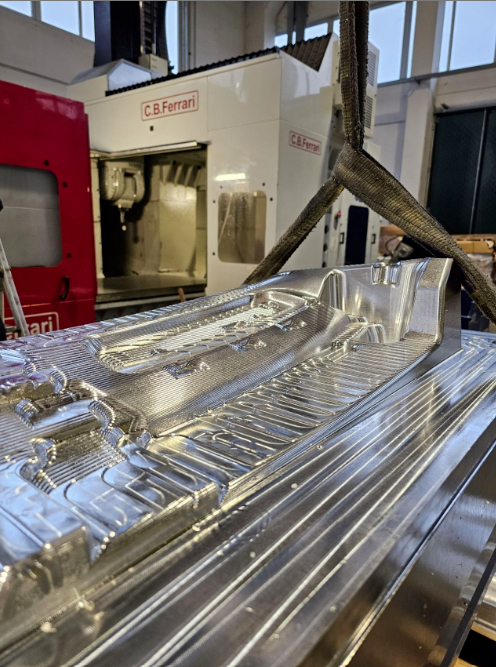Prototype moulds
Prototype moulds respond to the need to bring an engineered project to life and allow the customer to test and validate the finished product.
Aluminium is the privileged material and used to produce the prototype mould. This is one of the characteristics that allows them to stand apart from the traditional moulds, made of steel and destined to large mass production operations.
The choice of aluminium over steel brings a variety of advantages, bearing in mind that these same advantages will only continue to remain positive, for as long as the number of pieces to be produced is, indicatively, less or equal to 3,000/5,000.

Here are the advantages:
- Increased ductility and malleability: faster and easier mould processing, quicker and cheaper mould production What’s more, the mould is even easier to modify and/or repair in the event of damage or modifications requested by the customer.
- Final polymer moulding
- Improved thermal conductivity:
- Faster heating and cooling times make the moulding cycle much more efficient. The mould temperature can reach 130°
- More simple conditioning system, lower design, engineering and production costs
- best chance to dissipate the heat, heating areas and even cooling and heating that allows you to reduce the number of faulty parts
- Lighter specific weight: less wear and tear of the moulding machine and lower energy consumption, increased ease of insertion leading to lower moulding costs.
There are endless advantages for customers, in fact, aluminium is not only used to produce prototype moulds (after the engineering and design phase) but also for final moulds intended for smaller production volumes. For instance, this could refer to parts for limited car editions (supercars) or to meet swift delivery requirements (it could take double the time, or even more, to produce the same mould in steel).
Professional skills and technological innovation
Prototype moulds can be produced using different techniques. The most economic solution for customers is, without doubt, the one that makes it possible to design and use the mould with the “manual handling of the dowels”. It is a difficult application as it can not be assigned to an automated robotic system, but relies on the professional skills of the operator. Experience and consolidated manual expertise are what make the difference, the advantage for the customer is paramount.
In order to implement and enhance all these aspects, having relevant experience combined with specific technical and design skills and expertise are fundamental requisites: aluminium has unique features that can only be managed by the proficient hands of professional experts in this industry.

Let's get in touch!
Leave your details and let us know your needs. We will contact you as soon as possible to discuss it!

